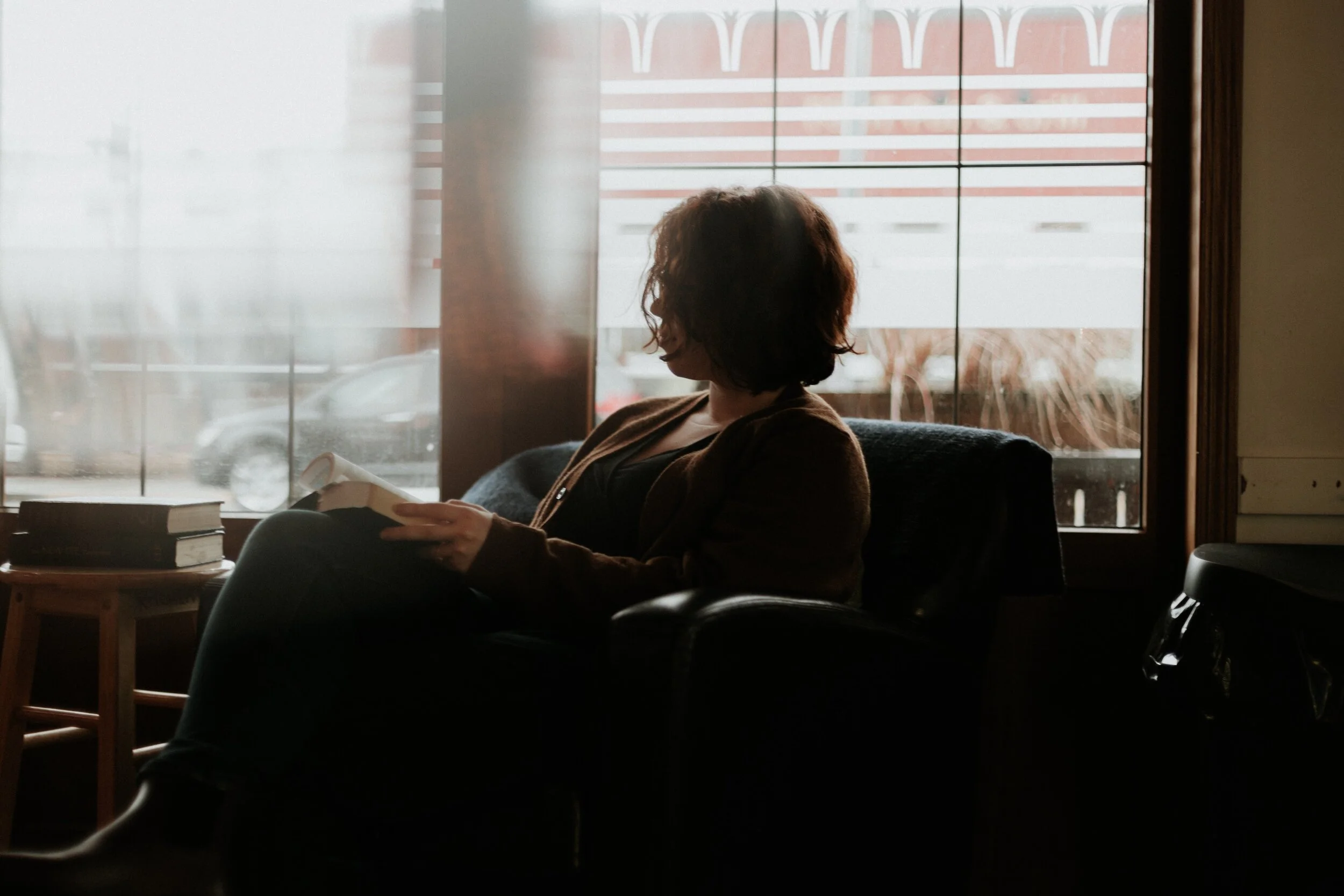Processing Hard Things From Far Away with Tamika | Taking Route Podcast Ep. 34
Initially, I was really hesitant to say anything — I guess out of personal guilt from not physically being in the States. But at the same time, I wasn’t sleeping and I was suffering all along — just the same as if I were in the States. Then there was the added element I think every expat feels — kind of responsible as the token American in the neighborhood. Any questions your host country has about what your passport country is doing — you’re the go-to person for that.
One of the hardest parts about expat life is being so far away when tragedy strikes your home country. You want to hug your loved ones, process things out loud with your closest friends, and be near the ones you hold closest to your heart. In today’s episode, we talk with Tamika about what it’s been like to be a Black American woman, married to an Austrian, and living far away from the States as racial tension builds during a global pandemic.
Tamika shares what it’s been like to emotionally process events from afar, and how she and her children have become the go-to American source for their local friends and peers to ask questions about the current events in the U.S. We also discuss the delicate balance of talking with our TCKs about the hard things so they won’t be naive to what is happening in the world — and most importantly, in their own home country.
In closing, Tamika shares a word of encouragement to expat women of color and gives beautiful words of wisdom to white expats on how to be a safe place for your friends of color who are processing troubling events from far away. “If you’re in a situation where you see any kind of injustice,” Tamika adds, “regardless of who you are, you can step in front of it. Put yourself out there so they know they’re seen and that they matter.”
Connect with Tamika on Instagram and Twitter
Connect with Denise
Connect with Melissa
Questions discussed during this episode:
What have you been learning and processing as an American citizen living in Europe while so much racial tension is going on in the States?
When you’re processing these things in the middle of your night, are you talking to people back in the States? Are you talking with your family about these things? Do you have any personal information coming to you from friends or family?
Has it been hard to process things with your husband, being that he’s Polish, was raised in Europe, and not Black? Have you felt alone in it?
Can you share about the differences between your children’s life experiences and your life experiences growing up and how you parent and teach them about these things even though it’s not 100% their reality?
How are you opening up the conversation with your children or is it just happening naturally as they’re hearing things at school?
As an expat of color, what would you say to encourage another expat of color when she’s struggling or processing through things?
For white expats, how we can support our expat sisters and brothers of color?
Mentioned in Episode:
Tawni’s episode: Finding Your Place as a Trailing Spouse | Ep. 29
The song, “Glory” by John Legend and Common, from the motion-picture Selma.
Noteworthy Quotes:
“Initially, I was really hesitant to say anything — I guess out of personal guilt from not physically being in the States. But at the same time, I wasn’t sleeping and I was suffering all along — just the same as if I were in the States. Then there was the added element I think every expat feels — kind of responsible as the token American in the neighborhood. Any questions your host country has about what your passport country is doing — you’re the go-to person for that.”
“I couldn’t not have an opinion and I couldn’t not talk about it, but it was also pretty raw.”
“I’d wake up in the middle of the night and look at my phone and there would be a Twitter notification. I’d open up Twitter at 3 am and see some news headline about how more people of color were dying from coronavirus and that started to make me uneasy. I felt that I needed to be paying attention to what was going on in the world — so I kept the phone on.”
“We always had this agreement that if I wanted to talk about it, these friends would let me talk about it.”
“My husband and I process everything through our own cultures first, which has always been an interesting element in our marriage. But his experiences with racism have been experiences that we’ve had together. We process it differently but he recognizes that I can walk into a room with him and there’s immediately a difference because of the way I look. So he’s processed that out loud a little bit, recognizing there’s something different in what the kids and I experience on a day-to-day basis. But emotionally, it impacts him as well.”
“I thought I was moving from the Melting Pot of the World to Vienna, Austria. And when I got here, I had never seen so many different shades, mixtures of families, and different cultures. I thought, “this is more of a melting pot than where I come from.”
“I was always the Black kid in a White classroom. My kids are never that. They are one of half of the class that has a different shade of skin but they’re all from different places.”
“Kids notice things. As a teacher, I was licked by children to see if I tasted like chocolate. And my kids have had experiences like that — having kids come up with an eraser and see if [their color] comes off.”
“Things happen with kids that I don’t think are purposely racist. I think they’re just curious children.”
“They do not have the context nor the knowledge to understand what they’re saying — which has caused my daughter to feel like it’s her job to educate everyone about what it is they’re saying, what it’s doing, and what it means.”
“My kids are representatives of their host culture in their school.”
“I just wasn’t prepared for that, as a mom — that my children would be having conversations like that in such a big way.”
“I’m not NOT thinking about it, but I’m trying to rest my mind in it — so I’ve been drawing as opposed to talking. I’ve been pouring all of my thoughts into drawings.”
“They hear us talking about it out loud and processing it. If they ask a question, we’ll answer. We don’t talk about really scary things in their presence but we have told them we’re aware. I pray with the little kids at night and I do bring that into it. I’ll say, “you’re hearing a lot of things about people doing things in the world and people feeling scared and people learning and growing.”
“I just try to remind them that the bottom line is, even in the scary times, it might feel like to us that everything is out of control — but that is just God waiting so that everybody can do better — learn better, do better, and grace.”
“I grew up knowing that my parents had to drink out of a different water fountain than other people did. And if they wanted to have ice cream, they had to go sit by the bathroom in the back of the building so nobody would see them. So to me it’s not weird for [my children] to know that happens. So it’s not as easy for me to stop and think ‘oh no, they shouldn’t watch this movie.’ Because the reality is — it’s reality.”
“I don’t want [my children] to grow up in a fairy tale. America is like Disney Land to an expat kid. They don’t think of it as a place you go to live and work — that’s a place you go to have fun and have these amazing experiences! So I don’t want them to just blindly believe that it’s something that it’s not.”
“For expats of color, don’t feel guilty. Don’t feel like the distance negates your experience. Don’t let shame and guilt of your current situation or physical location keep you from being engaged in the conversation and doing your own work.”
“The reality is, we all have things to unlearn and we all have biases.”
“Sometimes I expect someone to have a reaction that they’re not really having. And that’s on me, that’s not on them. That’s on me to figure out my own biases.”
“For white expats, check in. Feel free to ask “how is this effecting you?” It’s been very, very helpful for me to have friends that I knew that I could say really what I feel — I can bring my whole self — and they can handle it.”
“If you’re in a situation where you see any kind of injustice, regardless of who you are, you can step in front of it. Put yourself out there so they know they’re seen and that they matter.”
“How often have we all been in situation where we’ve seen something happening to someone and we just look and go “oh goodness, that’s not good.” Maybe we need to try to look at those situations a little bit differently and be the advocate.”
Show credits:
Hosted by Denise James, Alicia Boyce, and Melissa Faraday // produced and edited by Melissa Faraday // content managed by Alicia Boyce.
HELP THE TAKING ROUTE PODCAST REACH MORE EXPATS
Subscribe | To subscribe on iOS, go to our iTunes page and subscribe to the Taking Route Podcast. If you’re an Android user, we recommend using the Stitcher App which you can find in the Google Play store. Then, once you’re in the app, search for “Taking Route Podcast.” Click the plus (+) sign to add our podcast to your Favorites list.
Leave a review | When you leave a five-star iTunes review, it helps other expats find us when they’re seeking out podcasts on iTunes. Need directions? Just check out the “Reviews” highlight on our Instagram account.
Share with a friend | We hope to see the Taking Route podcast grow and grow and grow, but we rely on expats like you to spread the word. We appreciate when you share our episodes—whether that’s via Facebook, email, Twitter or Instagram. Thank you for the love!






